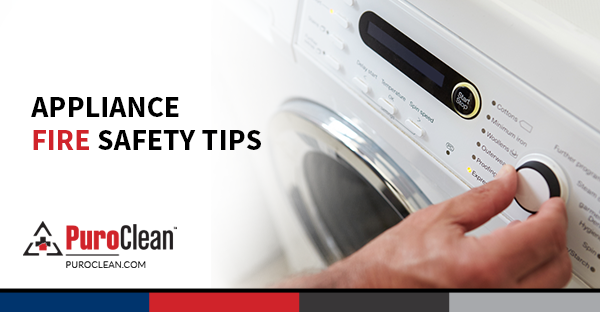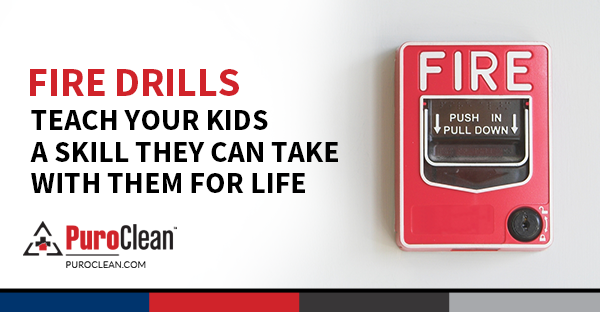 Household appliances make our lives easier on a daily basis. However, every machine that operates on electricity or gas presents safety risks and should be used according to the manufacturer’s instructions. Below are essential appliance fire safety tips to help you prevent disasters in your home:
Household appliances make our lives easier on a daily basis. However, every machine that operates on electricity or gas presents safety risks and should be used according to the manufacturer’s instructions. Below are essential appliance fire safety tips to help you prevent disasters in your home:
General Safety Tips
- Keep appliances at a safe distance from wet areas, especially in the bathroom, kitchen, garage or basement.
- Keep potentially flammable items, such as furniture, clothes or curtains, away from heaters or appliances that produce heat.
- If an appliance or lamp sputters, produces a spark or gives you a shock when running, have it repaired as soon as possible.
- Never force an appliance with a three-prong plug into a two-prong outlet or extension cord.
- Never run cords under carpets or rugs, as this can damage the cords and cause a fire.
- Check the wires of appliances regularly. Replace or repair frayed, damaged wires.
- Don’t plug too many plugs into an electrical outlet; plug only one wattage appliance into an outlet at a time.
- Unplug all small electrical appliances, such as irons, toasters, hair dryers, and shavers when not in use.
- Install smoke alarms on every level of your home. Test the alarms once a month and replace batteries each year.
Clothes Dryer
- Properly ground clothes dryers properly and keep the area around your dryer clear of things that can burn.
- Always use a lint filter when operating a dryer and clean the lint from the filter before or after each use.
- Vent dryers directly outside using rigid or flexible metal venting materials. Make sure the air exhaust vent pipe is not restricted.
- Clean out the lint from the vent pipe once a year or more often if clothes are taking longer than normal to dry.
- More clothes dryer safety tips are available here.
Electric or Gas Ranges
- Remove grease or other debris from the burner, stove top or oven. Never leave combustible items near ovens.
- Always supervise the range when cooking and turn it off when you have to leave the kitchen.
- Roll up your sleeves, tie back long hair and wear non-slip when cooking.
- Before using the range, make sure it doesn’t smell of gas inside the oven or near it.
- Find out more oven range safety tips here and kitchen safety rules here.
Dishwasher
- Make sure the dishwasher is always supervised when operating. Don’t use the dishwasher when going to bed or before leaving the house.
- Avoid using extension cords as a permanent solution to power the dishwasher. Plug your dishwasher into a grounded wall socket.
- Check the plastic components that release the detergent on the interior of the door. If damaged, these components can cause water to leak over the machine’s internal wires, resulting in a fire.
- More dishwasher safety tips can be found here.
Electric Heater
- Keep heaters at least 3 feet away from flammable materials like paper, trash bins, furniture, drapes or carpet.
- Place heaters on a stable, horizontal surface (preferably on the floor) where it can’t be knocked over easily.
- Here you can find more electric heater safety guidelines.
Microwave Oven
- Never use aluminum foil or metal in a microwave oven, as metal can start a fire. Use only microwave-safe food containers or dishes.
- Microwaves are not designed for drying or sterilizing baby bottles, clothes or blankets.
- Clean the microwave, including the outer edge, from food debris, grease or stains regularly.
- To learn more microwave oven safety tips, click here.
In case you’ve experienced a home fire, take a look at this article to learn how deal with the fire damage. Visit this page to learn what questions you should ask your insurance agent after the fire. For professional fire, water and mold restoration services, contact your local PuroClean office.



 Purofirst Fire & Water
Purofirst Fire & Water